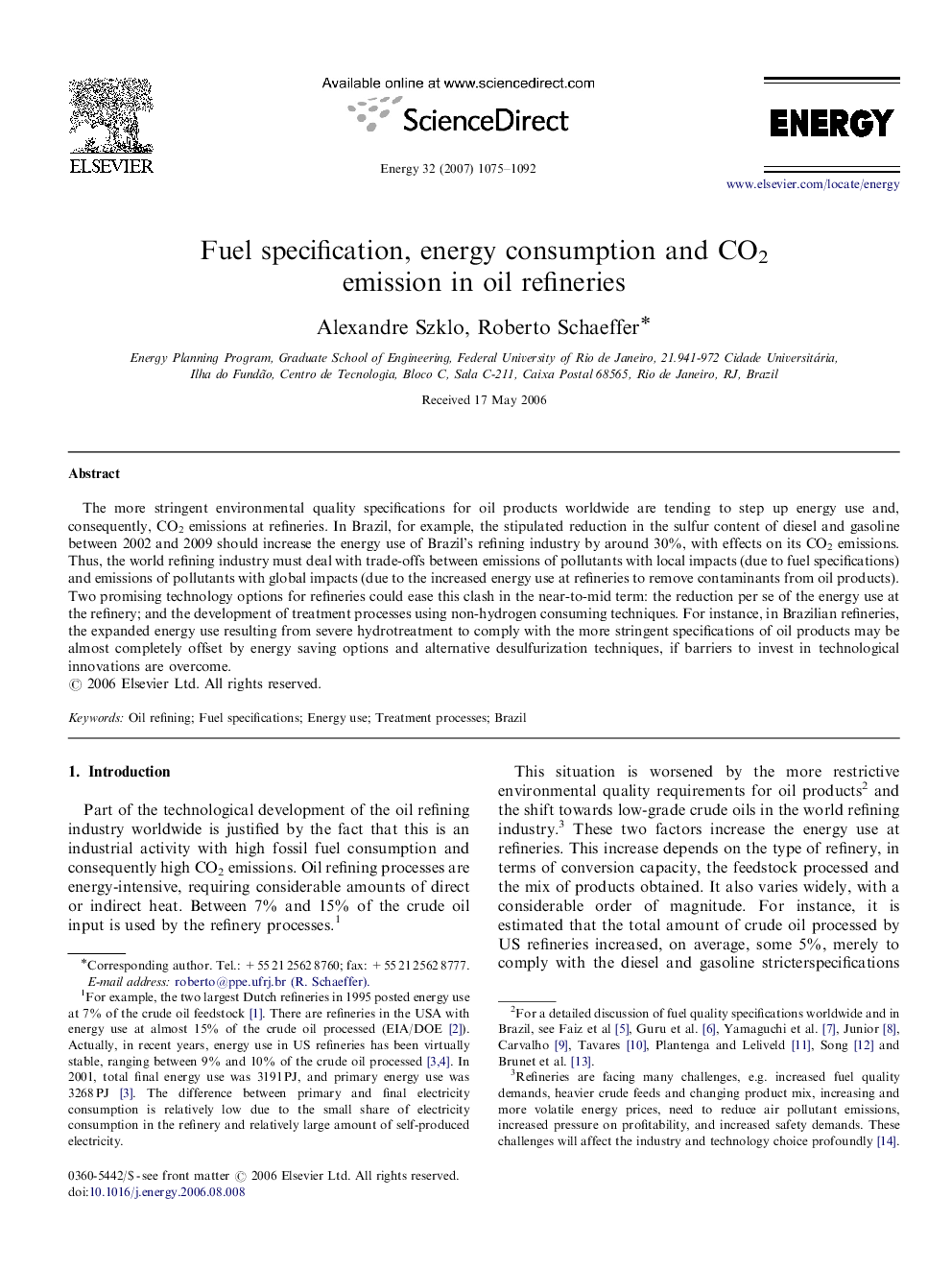| Article ID | Journal | Published Year | Pages | File Type |
|---|---|---|---|---|
| 1735815 | Energy | 2007 | 18 Pages |
The more stringent environmental quality specifications for oil products worldwide are tending to step up energy use and, consequently, CO2 emissions at refineries. In Brazil, for example, the stipulated reduction in the sulfur content of diesel and gasoline between 2002 and 2009 should increase the energy use of Brazil's refining industry by around 30%, with effects on its CO2 emissions. Thus, the world refining industry must deal with trade-offs between emissions of pollutants with local impacts (due to fuel specifications) and emissions of pollutants with global impacts (due to the increased energy use at refineries to remove contaminants from oil products). Two promising technology options for refineries could ease this clash in the near-to-mid term: the reduction per se of the energy use at the refinery; and the development of treatment processes using non-hydrogen consuming techniques. For instance, in Brazilian refineries, the expanded energy use resulting from severe hydrotreatment to comply with the more stringent specifications of oil products may be almost completely offset by energy saving options and alternative desulfurization techniques, if barriers to invest in technological innovations are overcome.
